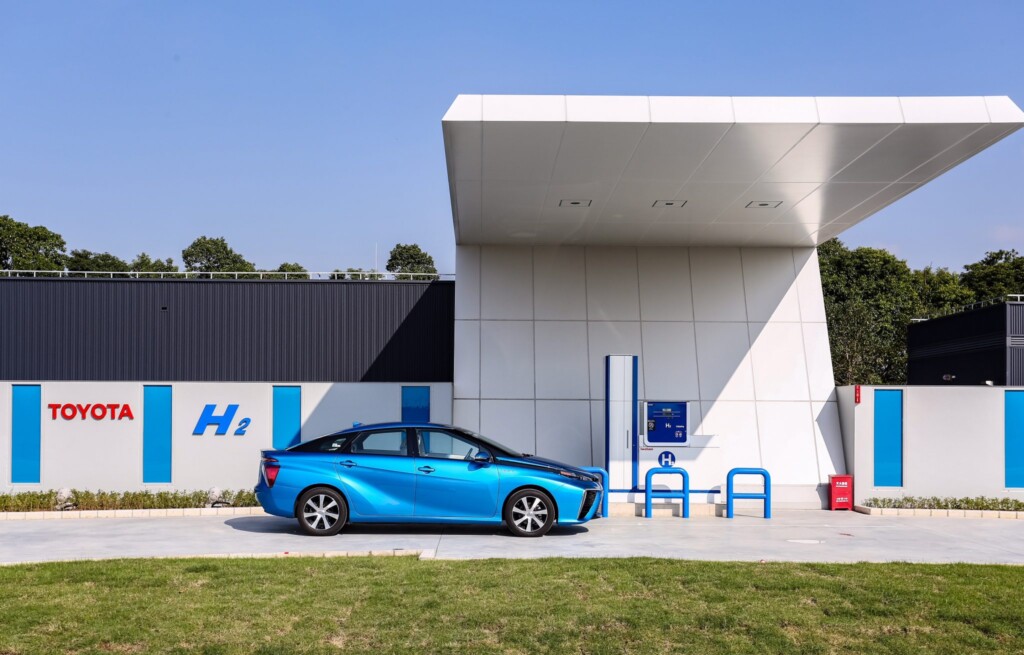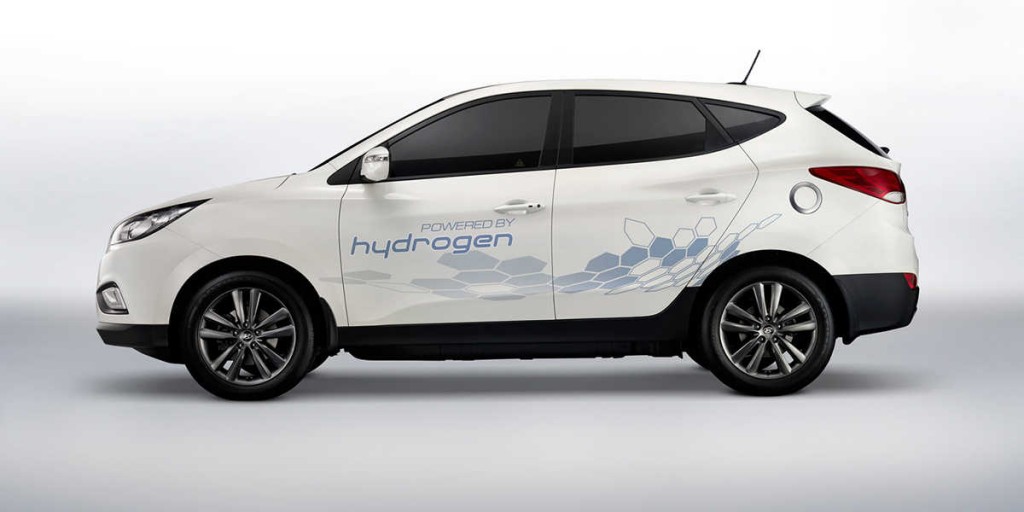Electric cars and vehicles seem to be the buzz these days. The technology sounds clean but getting the materials to build your batteries and even the fuel to power the electric grid isn’t. There is another movement and that movement is aimed at hydrogen as an alternative fuel source. Car makers like Toyota and Honda have been in the market for a while now having hydrogen fuel stations in countries like Germany and in states like California but the market hasn’t picked it up yet.
Still that doesn’t stop the Hydrogen Council from welcoming 11 new members from Asia, North America and Europe. Leading international oil & gas, energy, science & technology and automotive companies come on board, driving hydrogen innovation to support the energy transition and almost doubling Council membership one year on from its launch.

3M, Bosch, China Energy, Great Wall Motor, JXTG Nippon Oil & Energy Corporation and Weichai, join as steering members alongside Hexagon Composites, Marubeni, McPhy, Nel Hydrogen and Royal Vopak at supporting level. Since its launch in early 2017, the Hydrogen Council, the first of its kind CEO-led initiative, has doubled in size, now covering all key markets with members across the value chain. In addition to their ongoing individual investments and projects, this year will see Council members join forces to drive change, accelerating the pace on a global scale.
“We are delighted to welcome such impressive growth and the strong CEO-level commitment to hydrogen this demonstrates. This is corporate leadership at scale―multinationals are walking the talk when it comes to building better solutions to address the Paris Agreement climate goals and hydrogen has become an integral part of our strategies.” said Dr Woong-chul Yang, Co-Chair of the Hydrogen Council and Vice Chairman of Hyundai Motor Company.

With increasing interest from policy makers and investors around the globe, the next five to ten years could see a decisive shift in deployment of hydrogen technologies, with scenarios suggesting that hydrogen technologies could contribute to meeting 18% of the world’s final energy demands, avoiding 6 Gt of CO2 emissions, creating a market with revenues of 2.5 trillion dollars each year and providing 30 million jobs by mid-century.
Benoît Potier, Co-Chair of the Hydrogen Council, Chairman and CEO of Air Liquide said “I am pleased to see more and more leading companies around the world committing to the development of hydrogen, recognizing it as a key solution to the energy transition. Since its launch one year ago, the Council has been able to build strong momentum. Its active participation in high level international events such as the World Economic Forum, New York Climate Week, One Planet Summit and Cop23, lead to major progress engaging with policy makers and governments. Our priority in 2018 will be to continue this rapid pace working alongside global partners and international organizations to help make hydrogen an everyday reality.”
About the Hydrogen Council
Launched at the World Economic Forum in Davos in early 2017, the Hydrogen Council is a first-of-its-kind global CEO initiative to foster the role of hydrogen technologies in the global energy transition. Current members include 24 leading multinationals―3M, Air Liquide, Alstom, Anglo American, Audi, BMW GROUP, China Energy, Daimler, ENGIE, General Motors, Great Wall Motor, Honda, Hyundai Motor, Iwatani, JXTG Nippon Oil & Energy Corporation, Kawasaki, Plastic Omnium, Royal Dutch Shell, Statoil, The Bosch Group, The Linde Group, Total, Toyota and Weichai―as well as 15 dynamic players from across the value chain – Ballard, Faber Industries, Faurecia, First Element Fuel (True Zero), Gore, Hexagon Composites, Hydrogenics, Marubeni, McPhy, Mitsubishi Corporation, Mitsui & Co, Nel Hydrogen, Plug Power, Toyota Tsusho and Royal Vopak. The coalition collectively represents total revenues of over € 1.6 trillion and close to 2.5 million jobs around the world.2
The Hydrogen Council has published two studies to date, How hydrogen empowers the energy transition (January 2017)exploring the role of hydrogen in the energy transition, including its potential, recent achievements, and challenges to its deployment and Hydrogen, scaling up (November 2017) presenting the first comprehensive vision of the long-term potential of hydrogen and a roadmap for deployment. To find out more: www.hydrogencouncil.com.
Other posts by Mark Leo








